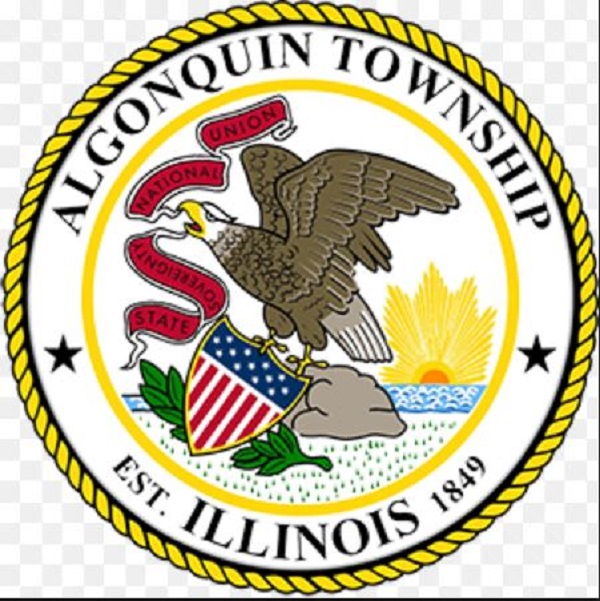McHenry Co. (ECWd)
During the June 20, 2019 hearing in Lake County regarding legal fees for Local 150 against the Algonquin Township Road District, the two attorneys for Local 150 took opposing positions on who should be responsible for the requested legal fees pertaining to Highway Commissioner Andrew Gasser and the past contempt order issued against him.
While opposing positions are common in the normal course of a court preceding, normally the conflict is with opposing counsel, not co-counsel.
Local 150 attorney Robert Paszta asserted :
- “Our position is it should be awarded against the Road District and the Highway Commissioner in his professional capacity. We characterized the petition in that regard. He was the party that was held in contempt in his capacity as Road Commissioner and these arguments were never raised.” (See page 14 of the transcript)
Note the attorney confirms the petition for the fees named the Road District and Highway Commissioner in his professional capacity, not as an individual.
Local 150 attorney Bryan Diemer asserted:
- “I think Mr. Gasser made decisions eyes wide open, and he should bear the cost of those decisions, not the taxpayers of Algonquin Township. And so I would ask that the order be entered against Mr. Gasser individually.” (See page 15 of the transcript)
Now before a select group of anti-Gasser people get their britches all bunched up, the information provided in this article is not about Gasser and his actions as a Highway Commissioner. It is about the rule of law and how it is applied and how that application can directly affect your local government on several fronts.
The Judge ordered attorney fees against Gasser individually and made an interesting comment regarding reimbursement.
- “He was held in contempt, so I’m going to be awarding the judgment against Andrew gasser, and on his behalf, you can pursue, I suppose, reimbursement if you think it’s justified under the law from the Township or the Road District as appropriate.
The law in question is known as the Local Governmental and Governmental Employees Tort Immunity Act. A point of interest in that act is Part 3, Indemnification of Public Employees.
- (745 ILCS 10/2-302) (from Ch. 85, par. 2-302)
Sec. 2-302. If any claim or action is instituted against an employee of a local public entity based on an injury allegedly arising out of an act or omission occurring within the scope of his employment as such employee, the entity may elect to do any one or more of the following:
(a) appear and defend against the claim or action;
(b) indemnify the employee or former employee for his court costs or reasonable attorney’s fees, or both, incurred in the defense of such claim or action;
(c) pay, or indemnify the employee or former employee for a judgment based on such claim or action; or
(d) pay, or indemnify the employee or former employee for, a compromise or settlement of such a claim or action.
Applying the law, the Algonquin Road District “may” indemnify the employee or former employee for his court costs or reasonable attorney’s fees and “may” elect to pay for a judgment. The Judge appears to take the position that this could be pursued if they think it is justified.
Since it is the public entity that makes such a decision, it would appear it is up to the Algonquin Township Road District Highway Commissioner to make such a determination. I think we all know, anyone sitting in that position is going to have the public body pay the bill rather than themselves individually. Regardless of what people think should be done and regardless of what Gasser decides in this matter, the judge’s ruling raises serious concerns.
Andrew Gasser was not named in court action in his personal capacity. Local 150 attorney Paszta confirmed that fact as does the court filings. That being the case, how can a judgment be placed against a person that is not even a named party in action before the court?
The point with this is the chilling effect such an order has on people who may want to enter public office. If elected officials indemnity protections are going to be ignored by the courts, it will surely have a negative impact on peoples willingness to serve in any capacity in their local government. More importantly in our opinion, if courts can issue orders against a person not named individually in a petition then they have taken their power at the bench to a whole new level.
Think about it long and hard.
If you are an elected official and an action is brought before you in the court naming you in your official capacity, any finding in such a case against the elected official is just that, against the elected official, not you as an individual. While many want Gasser to pay for his actions individually, such a requirement sets a precedent that should concern anyone even thinking about running for local office or even being an employee of a public body.
The language in the law cannot be any clearer:
(745 ILCS 10/1-101.1)(a) The purpose of this Act is to protect local public entities and public employees from liability arising from the operation of government. It grants only immunities and defenses.
If such protections can be stripped away by an elected judge we will find ourselves with fewer and fewer people willing to step up and participate in their government because now it appears a judge can order you to personally pay even though you’re not named individually. How many are willing to put their personal finances up for grabs by an elected judge? If you want politics to rule, allow this type of action to stand. The law is in place to ensure operation of government. Take it away and you will surely see government operations diminished due to fear of being personally liable for actions taken as a public employee.
We understand the order has been appealed and when we get a copy of the appeal we will publish it. We suspect it will be based on at least two different issues. One being Andrew Gasser was not sued in his personal capacity so the court would be limited to issuing an order only against those named in the capacity found on the petition and the other on the issue of awarding attorney fees.
Local 150 argued for attorney fees because they performed the work at a cost on behalf of its members. Hanlon argued they are not entitled to such attorney fees based on clear language found in the UPTOWN PEOPLE’S LAW CENTER vs IDOC case. When an entity uses in house counsel there are different rules applied to attorney fee matters and it appears the argument made by Hanlon is that Local 150 used in house counsel who are basically employees rather than contracted attorneys. We will predict that if attorney fees are granted, it will be an obligation of the Road District, not Andrew Gasser individually.
We have been told Local 150 did file for sanctions against Hanlon at the Appellate Court and their motion was denied without needing any response from Hanlon. We have FOIA’d those documents and will publish when we receive them.
A copy of the transcript related to the recent court order against Gasser can be found at this link or viewed below.









No Comments